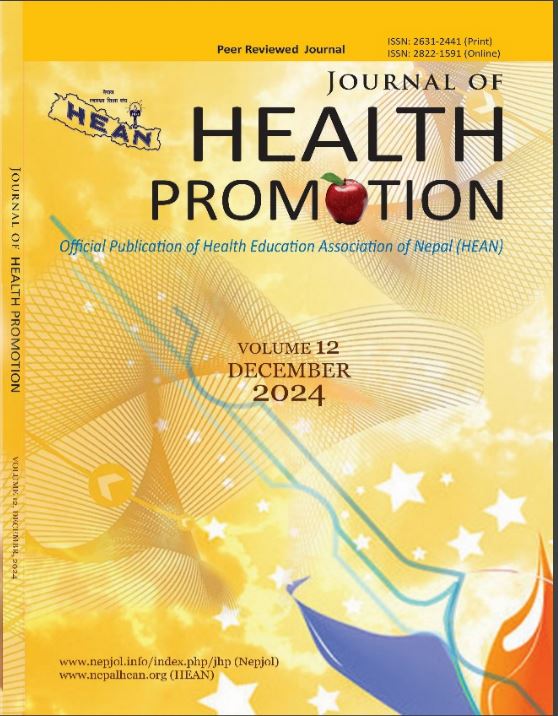Participatory Action Research: An Emergent Research Methodology in Health Education and Promotion
DOI:
https://doi.org/10.3126/jhp.v12i1.72690Abstract
PAR methodology in educational research holds significant potential to empower both researchers and research participants (co-researchers). By fostering critical consciousness and awareness of their shared context, PAR enables the participants to collaboratively generate context-specific knowledge and develop strategies to address the challenges within their practice settings. Although the history of using PAR as a research methodology by university researchers in Nepal is relatively recent, its application is gaining momentum and popularity within the academic community. This growing acceptance highlights its relevance and effectiveness in addressing complex real-world issues through collaborative efforts. PAR is particularly well-suited for designing, implementing, and evaluating school-based health and education practices. Its participatory approach ensures that interventions are tailored to the needs and realities of the target community, making them more sustainable and impactful. By engaging educators, students and other stakeholders in the research process, PAR not only enhances the effectiveness of interventions but also fosters a sense of ownership, critical thinking, and empowerment among all participants. This methodology, therefore, offers a transformative framework for addressing educational and health challenges in diverse and resource-constrained settings.
Downloads
Downloads
Published
How to Cite
Issue
Section
License
Copyright (c) 2024 Health Education Association of Nepal (HEAN)

This work is licensed under a Creative Commons Attribution-NonCommercial 4.0 International License.
© Health Education Network (HEAN)
Authors are required to transfer their copyright to the Health Education Association of Nepal (HEAN).
The materials of this publication may be reproduced, reviewed and translated, acknowledging the source "Journal of Health Promotion".




